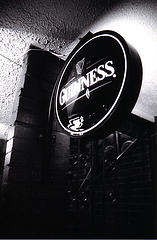The Statistical Significance of Beer
According to a new paper by Stephen T. Ziliak, it was a brewer at the famed Guinness beer company, William Sealy Gosset, who first began to explore the concept of statistical significance:
Gosset (1876–1937) aka “Student” – he of Student’s t-table and test of statistical significance – rejected artificial rules about sample size, experimental design, and the level of significance, and took instead an economic approach to the logic of decisions made under uncertainty. In his job as Apprentice Brewer, Head Experimental Brewer, and finally Head Brewer of Guinness, Student produced small samples of experimental barley, malt, and hops, seeking guidance for industrial quality control and maximum expected profit at the large-scale brewery. In the process Student invented or inspired half of modern statistics.
Here’s more detail on Gosset’s contributions:
As Head Experimental Brewer, a position he held from 1907 to 1935, Student’s main charge was to experimentally brew, and to gradually improve, a consistent barrel of Guinness stout, input by input, from barley breeding to malt extract, at efficient economies of scale. Pounding out more than 100 million gallons of stout in annual sales, the problem Student faced at Guinness was economically motivated and non-trivially large. While endeavoring to control product and reduce costs at the large brewery Student was consistently faced with a small number of observations on new barley to try, at n = 2, 4, or – if he was lucky – 7. In the process, he – though self-trained in statistics – managed to solve a general problem in the classical theory of errors which had eluded statisticians from Laplace to Pearson.
Less well-known is Student’s contribution to experimental design, systematically ignored by Fisher. Student found a method for maximizing the power to detect big economic differences (low Type II error) when the quantitative difference is really there to be detected.
So the next time you’re studying statistics, consider raising a pint of Guinness in Gosset’s honor.
(HT: Wonkblog)


Comments